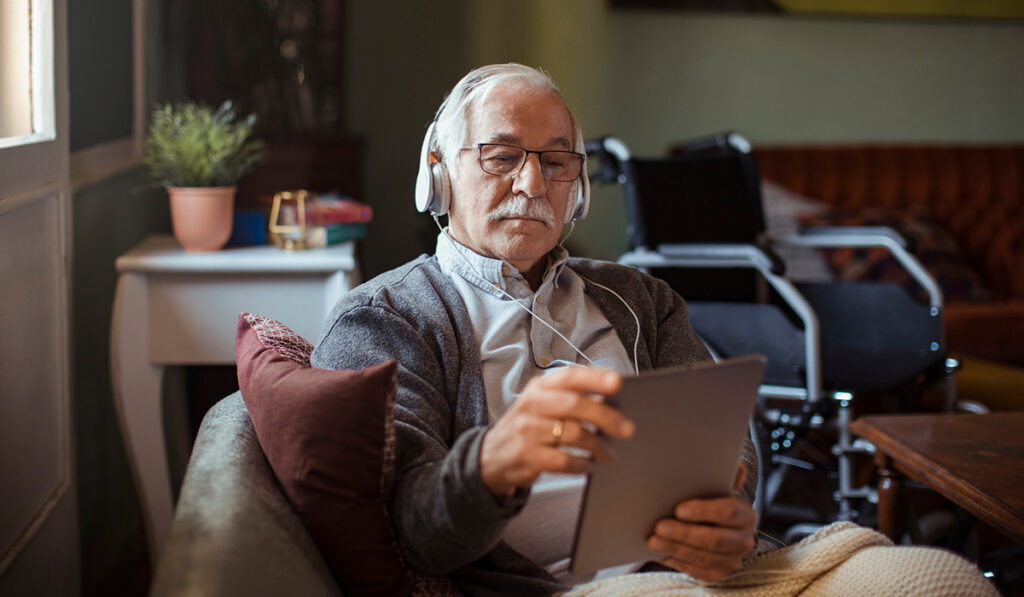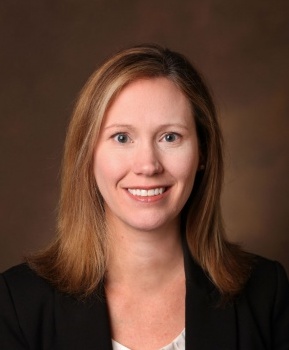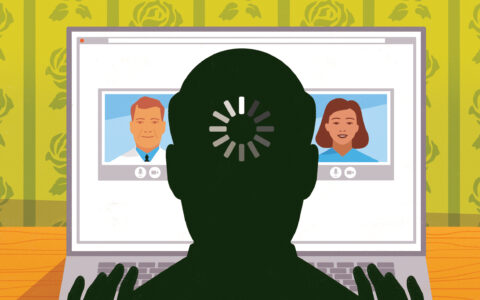The National Institute on Aging has awarded a multi-institutional team of researchers $3.3 million over five years for a trial investigating whether sharing audio recordings of clinic visits might improve the health of older adults.
Audio recordings can supplement traditional after-visit summaries, allowing patients to review information from their provider at their convenience.
The research team includes co-principal investigator Kerri Cavanaugh, M.D., director of the Vanderbilt Center for Effective Health Communication, colleagues from The Dartmouth Institute for Health Policy and Clinical Practice and the University of Texas Medical Branch, as well as several patients across the institutions.
“Patients who are partners on our research team suggest that recording the visit conversation will give them a new way to go over the information in the comfort of their home and at their own pace.”
“Patients who are partners on our research team suggest that recording the visit conversation will give them a new way to go over the information in the comfort of their home and at their own pace,” Cavanaugh said. “This trial will directly test this idea, and its impact on patient engagement and activation, to use visit information effectively in their day-to-day lives.”
Interest in Recordings Grows
According to the researchers, patients forget 40 to 80 percent of medical information as soon as they leave their appointment.
Several studies have found that providing audio recordings of clinic visits can improve information retention and may also minimize regret regarding treatment decisions. Cavanaugh and colleagues report that 71 percent of patients listen to audio recordings when provided, and 68 percent share with a caregiver. It’s a highly valued approach that the researchers say could “transform health care.”
However, Cavanaugh notes, most previous studies have focused on single or a limited number of recordings. The new trial will assess the value of providing audio recordings regularly as part of routine care.
Engaging Older Adults in Their Care
The REPLAY trial will enroll 336 older adults with multimorbidity, including diabetes. All will receive standard after-visit summaries following every clinic appointment, while half will also receive an audio recording of the encounter. The recordings will be provided through a HIPPAA-compliant smartphone app. Participants will be enrolled across all three institutions.
After a year of clinic visits, the researchers hope to have a better understanding of how audio recordings might enhance a patient’s ability to self-manage their condition. The researchers will measure any changes in patient quality of life, medication adherence or satisfaction. They will also determine which patients benefit most, focusing on caregiver support and mental health, among other factors.
REPLAY builds on a pilot trial by the researchers that was also funded by the National Institute on Aging. That trial helped establish the infrastructure to provide patients with recordings. It also helped assess whether the approach might be viable at a larger scale.
HealthPal, the patient-centered app being used for the REPLAY study, was designed by the researchers, with the help of older adults and their caregivers. The new trial will be its largest test to date.
Other Approaches and Responses
The researchers say audio recordings may particularly benefit adults facing multiple morbidities and complex treatment plans – a population often excluded from clinical trials.
Other approaches to helping adults manage their health include allowing patients to access their medical records or make video recordings during provider encounters. In a separate study, the CHRONICLE trial, the researchers are examining how a combination of audio recordings and open notes might benefit older adults.
Benefits to providers are not yet clear and worthy of more research, although Cavanaugh says the recordings alone will help address a common challenge.
“Providers are often challenged to exchange a high volume of key medical information with patients and caregivers within the limited time of a traditional office or telehealth visit,” Cavanaugh said.
So far, audio recordings appear manageable from the provider perspective. They’ve been shown to seamlessly enhance clinic workflow with protocols available, practitioners have confirmed.





